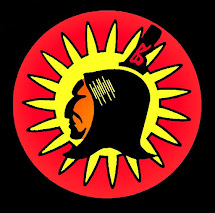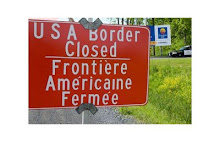Let’s be honest. Most people have no idea who Philip Sheridan is – or care. The infamous quote, “The only good Indian is a dead Indian” is attributed to him. Whether Sheridan really said it or not is like him – of little consequence. However, the quote is as entrenched in American racism as any opinion that was ever expressed.
Wednesday, August 28, 2013
Good “Indians”
Published in the August 28, 2013 issue of The Two Row Times
Let’s be honest. Most people have no idea who Philip Sheridan is – or care. The infamous quote, “The only good Indian is a dead Indian” is attributed to him. Whether Sheridan really said it or not is like him – of little consequence. However, the quote is as entrenched in American racism as any opinion that was ever expressed.
Let’s be honest. Most people have no idea who Philip Sheridan is – or care. The infamous quote, “The only good Indian is a dead Indian” is attributed to him. Whether Sheridan really said it or not is like him – of little consequence. However, the quote is as entrenched in American racism as any opinion that was ever expressed.
There
are two ways to interpret the quote but neither leaves any room to describe a
Native person who has survived the longest and most sustained attempts at
genocide as “good.”
The
obvious and first assumed interpretation is that relative to a live “Indian” a
dead one is better. U.S. President and Nobel Peace Prize recipient Theodore
Roosevelt (d. 1919) once said, “I don't go so far as to think that the
only good Indians are dead Indians, but I believe nine out of ten are, and I
shouldn't inquire too closely into the case of the tenth.” This guy obviously
subscribed not only to this interpretation but also to this sentiment. Is there
any wonder why the Lakota want his face off their Black Hills?
There
is another way to view this classic American quote and that is to suggest that
all the “Good Indians” have died or been killed. L. Frank Baum, author of “The
Wonderful Wizard of Oz” thought Sitting Bull was a “good Indian.” He called him
the “Greatest Medicine Man of his time, by virtue of his shrewdness and
daring.” And upon his cowardly murder at the hands of the U.S. government, Baum
went on to write, “With his fall the nobility of the Redskin is extinguished
and what few are left are pack of whining curs who lick the hand that smites
them.”
Now
here we have a “gentleman” that so loved the image of the “early Redskins of
America” who because of his belief that the “proud spirit” of the Indian
“lingered last in the bosom of Sitting Bull,” called for “the total
annihilation of the few remaining Indians.” For Baum, the “Good Indians” were
all dead and so as not to tarnish the image of those “good” dead Indians, he
preached genocide.
In
his words: “Why not annihilation? Their glory has fled, their spirit broken,
their manhood effaced; better that they die than live the miserable wretches
that they are. History would forget these latter despicable beings, and speak,
in latter ages of the glory of these grand Kings of the forest and plain.”
Hell! They would model their Boy Scouts of America after them. They’ll name
their high school, college and professional sports teams after them. But, of
course, he meant name them after the “good Indians” – that is
to say, the dead ones.
Unfortunately,
for America – and not for lack of trying – those “latter despicable beings”
were not annihilated. Baum knew we would always be trouble. Here’s what he
wrote following the 1890 Wounded Knee Massacre: “Having wronged them for
centuries we had better, in order to protect our civilization, follow it up by
one more wrong and wipe these untamed and untamable creatures from the face of
the earth.”
I
contend that most non-Native people on this continent suffer from a “Baum
Complex.” They really like the “story” of the “Indians” so why do we living
Indians have to mess it up for them? I don’t think the non-Native population is
really worried that we will destroy their civilization – they are doing that
just fine without us.
But
we sure do screw up their version of history; and messing with their sports
teams is just unreasonable. Even those that claim to “empathize” with us
because they acknowledge the undeniable, as Baum did – “Having wronged them
for centuries” – just can’t understand why we don’t stop all this
sovereignty nonsense. Just accept things now, be proud of who you were,
and stop being “despicable.” Cheer for the Washington Redskins and the
Cleveland Indians and be proud of your place in our history. So we've been
told.
I
was told recently and very publicly by the Niagara Falls, New York mayor to
“Let it go! Just let it go!” Well, many have, but a growing number of us just
won’t “let it go.” We will not be “Good Indians.”
Subscribe to:
Post Comments (Atom)













![-[]-[]-/\-[]-[]-](https://blogger.googleusercontent.com/img/b/R29vZ2xl/AVvXsEjLoXmKO8PJVQ5pZ2q7GX7nFKw8H2tb28dxt-o10FUBNtOGszWhWoLB7tgjtMgtISpuSxNW3fcDxfuSS2DqojsdjNJ1lVggyUS374PnzsDbOhk4ukvtTunFQcyfkckZeBzcLbri4LDYN_E/s214/29-03-A-voice-from-the-Akw-.jpg)





No comments:
Post a Comment